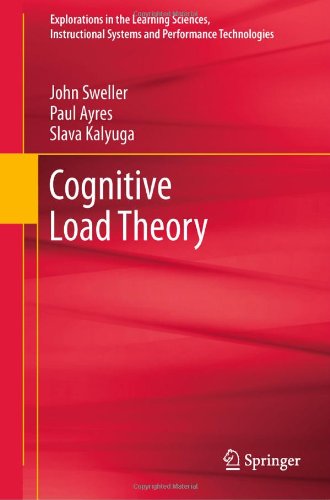

Most ebook files are in PDF format, so you can easily read them using various software such as Foxit Reader or directly on the Google Chrome browser.
Some ebook files are released by publishers in other formats such as .awz, .mobi, .epub, .fb2, etc. You may need to install specific software to read these formats on mobile/PC, such as Calibre.
Please read the tutorial at this link: https://ebookbell.com/faq
We offer FREE conversion to the popular formats you request; however, this may take some time. Therefore, right after payment, please email us, and we will try to provide the service as quickly as possible.
For some exceptional file formats or broken links (if any), please refrain from opening any disputes. Instead, email us first, and we will try to assist within a maximum of 6 hours.
EbookBell Team

5.0
48 reviewsCognitive Load Theory
John Sweller, Paul Ayres, Slava Kalyuga
Effective instructional design depends on the close study of human cognitive architecture—the processes and structures that allow people to acquire and use knowledge. Without this background, we might recognize that a teaching strategy is successful, but have no understanding as to why it works, or how it might be improved.
Cognitive Load Theory offers a novel, evolutionary-based perspective on the cognitive architecture that informs instructional design. By conceptualizing biological evolution as an information processing system and relating it to human cognitive processes, cognitive load theory bypasses many core assumptions of traditional learning theories. Its focus on the aspects of human cognitive architecture that are relevant to learning and instruction (particularly regarding the functions of long-term and working memory) puts the emphasis on domain-specific rather than general learning, resulting in a clearer understanding of educational design and a basis for more effective instructional methods. Coverage includes:
Academics, researchers, instructional designers, cognitive and educational psychologists, and students of cognition and education, especially those concerned with education technology, will look to Cognitive Load Theory as a vital addition to their libraries.